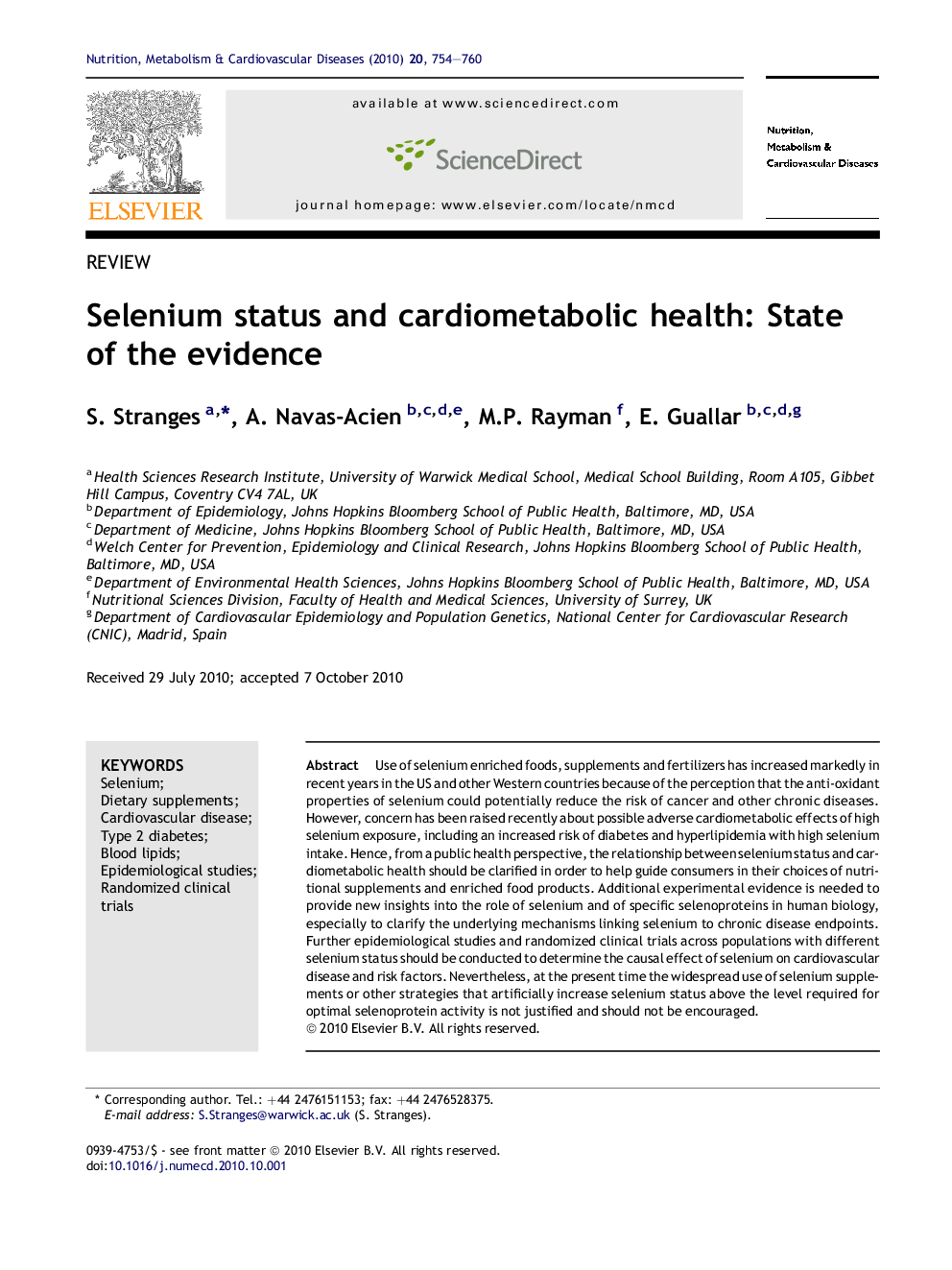| Article ID | Journal | Published Year | Pages | File Type |
|---|---|---|---|---|
| 3002881 | Nutrition, Metabolism and Cardiovascular Diseases | 2010 | 7 Pages |
Use of selenium enriched foods, supplements and fertilizers has increased markedly in recent years in the US and other Western countries because of the perception that the anti-oxidant properties of selenium could potentially reduce the risk of cancer and other chronic diseases. However, concern has been raised recently about possible adverse cardiometabolic effects of high selenium exposure, including an increased risk of diabetes and hyperlipidemia with high selenium intake. Hence, from a public health perspective, the relationship between selenium status and cardiometabolic health should be clarified in order to help guide consumers in their choices of nutritional supplements and enriched food products. Additional experimental evidence is needed to provide new insights into the role of selenium and of specific selenoproteins in human biology, especially to clarify the underlying mechanisms linking selenium to chronic disease endpoints. Further epidemiological studies and randomized clinical trials across populations with different selenium status should be conducted to determine the causal effect of selenium on cardiovascular disease and risk factors. Nevertheless, at the present time the widespread use of selenium supplements or other strategies that artificially increase selenium status above the level required for optimal selenoprotein activity is not justified and should not be encouraged.
